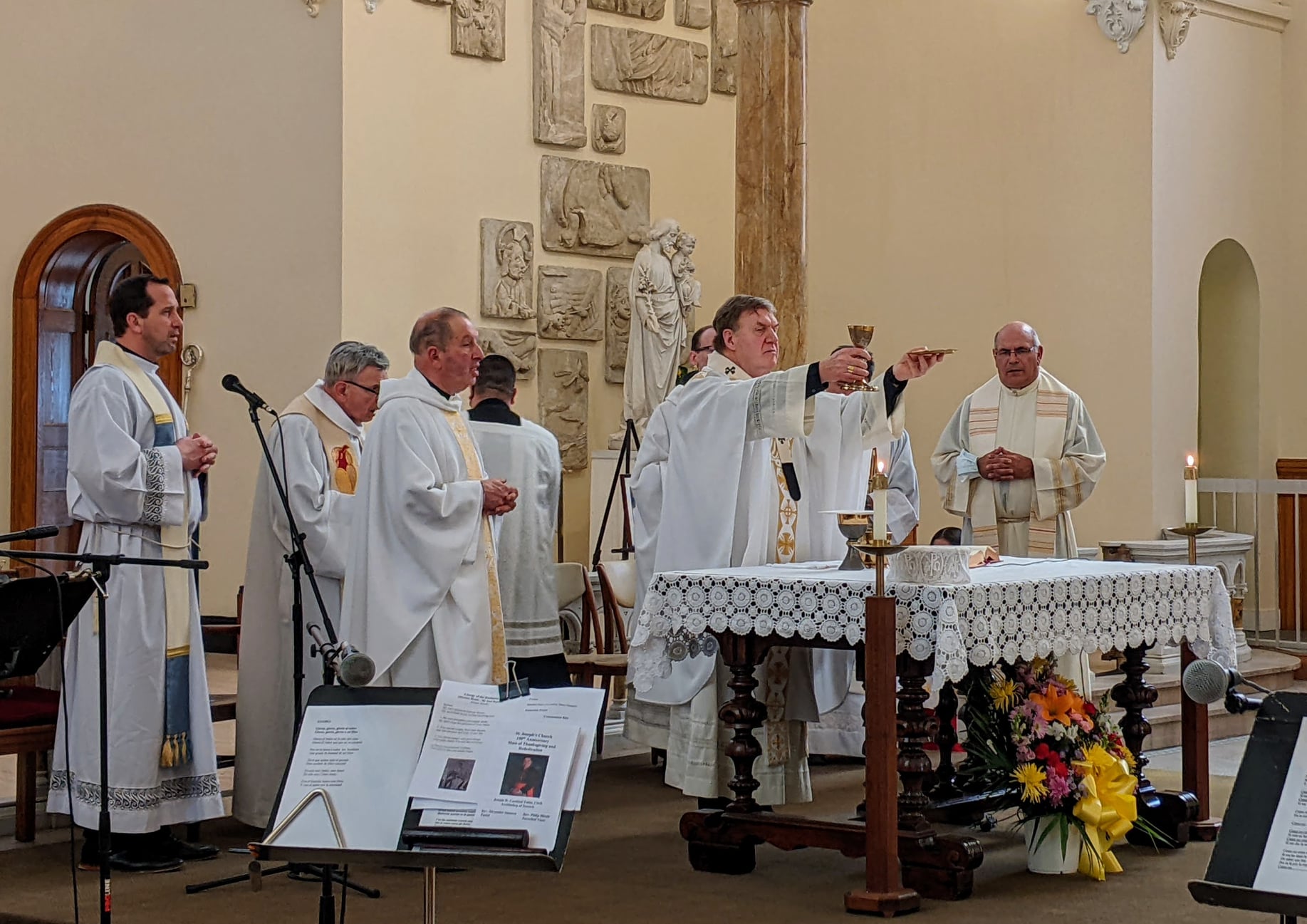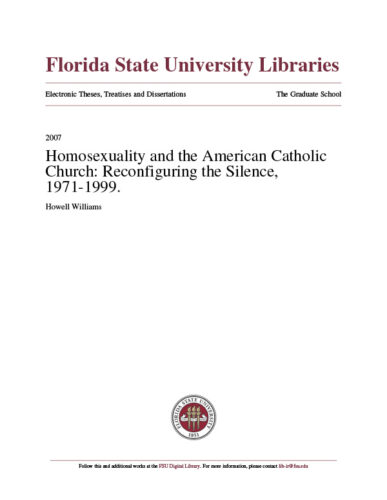One day at the Holy Rosary School in Jersey City, N.J., Sister Mary Zucca, M.P.F., the principal, called me to her office. When I arrived, she said that Father Salvatore Malanga wanted to see me in the rectory, which was around the corner. I wondered anxiously why I was being summoned, only to be relieved that he wanted me to lector at the first English Mass in the church next Sunday. In hindsight, that was perhaps the first significant change foreshadowing what would be a cascade of changes in my lifetime.
My formative years witnessed protests against segregation and racism, the Vietnam War and the stockpiling of nuclear weapons. New movements to improve civil rights, women’s rights and gay rights rose in society. All of these changes challenged the church to take stands for justice and impacted how the church could remain relevant.
After a rather progressive seminary education, I was ordained to the priesthood in 1982, when the winds of change were revolutionizing parish ministry. We celebrated the sacraments and built community side by side. We preached, provided many opportunities for adult education and equipped Catholics in the pews with the skills to think for themselves and become immersed in theological inquiry. We tackled community concerns through the lens of religion.
This was perhaps the first gay couple we saw to be so open about their sexuality. More remarkable was the acceptance of the parish community, which was inspiring.
For example, at St. Aloysius Church in Jersey City, we started an outdoor Stations of the Cross, which attracted hundreds of people, as we highlighted poverty, racism, violence, homelessness and more. We walked alongside Jesus through his suffering, Crucifixion and Resurrection.
A seminal moment for us at St. Aloysius’s was the appearance of two men who sat in the second row during Sunday Mass. At the exchange of peace, they would kiss. This was perhaps the first gay couple we saw to be so open about their sexuality. More remarkable was the acceptance of the parish community, which was inspiring.
This was a turning point for the priests—all five of us—since it made the gay presence in our church a reality that could not be ignored. When the American Psychiatric Association removed homosexuality from its list of mental disorders in 1973, many other barriers soon fell. And it was up to parish priests to minister to LGBTQ people in a way unlike before. The sudden appearance of H.I.V. and AIDS would challenge how Christian we would be.
Later on, working at a correctional center and then a public university exposed me to ministering in difficult and challenging circumstances. Harvesting these experiences enabled me to tackle my first and only pastorate at the mid-point in my priesthood.
Our Lady of Grace and St. Joseph Parish in Hoboken, N.J., has two churches and some 1,300 parishioners, including many young adults and new families. There are also two Spanish-speaking liturgies and communities. If geography is destiny, we are blessed to have young adults from all over the country settle on this side of the Hudson and worship together regularly.
In 2013, when Pope Francis asked his iconic question (“Who am I to judge?“), I knew he was shifting the tone for how we minister to LGBTQ people. A few years later, when Francis appointed Cardinal Joseph W. Tobin to lead the Archdiocese of Newark, we were blessed to encounter an open-minded and pastorally-oriented shepherd. In 2017, the Redemptorist cardinal welcomed a gay pilgrimage to the Sacred Heart Basilica Cathedral in Newark. He told them, “I am Joseph, your brother.” He also invited some 20 LGBTQ Catholics to dinner and then simply listened, asking them, “What can the church do for you?”
In 2013, when Pope Francis asked his iconic question (“Who am I to judge?”), I knew he was shifting the tone for how we minister to LGBTQ people.
About eight years ago, I invited parishioners together to consider an LGBTQ parish ministry. A small number of mostly older people came and met periodically. Gary Stavella, one of the cardinal’s past dinner guests, emerged as a gifted leader. Our parish bulletin, Sunday announcements and preaching touched on LGBTQ concerns relating to Catholicism.
We then announced an annual Pride Mass on the last Sunday of June. (We’ve celebrated six so far.) Leading up to the Mass, we decorated the church with LGBTQ colors. All these changes made people feel more comfortable with the ministry. Many parishioners attended the Pride Masses and brought their children along, because they want them to grow up in an inclusive church.
That may be the reason Pope Francis, through the recent Vatican declaration “Fiducia Supplicans,” has allowed church ministers to bless same-sex couples and couples in “irregular” situations. After this stunning announcement, it is now time to share the declaration with our parishioners.
During Lent, we plan to print excerpts from “Fiducia” in the parish bulletin and preach about how its meaning can unfold in parish life. We have planned a town hall style meeting after the largest Sunday morning Mass. This kind of gathering is familiar to our parishioners, as we hosted about a dozens meetings as part of the Synod listening process.
Leading a community of faith requires that we spend time dissecting church teaching in a palatable way so people are informed and inspired.
We expect people will want to understand what the document means for the church and how we can flesh it out in our communal life. We can include engaged couples who might be living together, as well. There is also a need for catechesis about blessings. What do they mean for the people who request them? Every encyclical or letter from the pope is a teachable moment for the church, and it is important to invite people to learn about it apart from news headlines or online commentary.
Change has been a staple in my life and in the life of the church. Leading a community of faith requires that we spend time dissecting church teaching in a palatable way so people are informed and inspired. Avoiding change shortchanges, so to speak, parishioners and leaves them grasping for guidance. When we take the time to tackle tough topics, like upholding the dignity of LGBTQ people in the church, we also affirm the sacredness of all life. That’s why Pope Francis’s blessings are blessings for the church.



